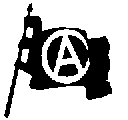Universal (at least in the western world), free education is a relatively recent innovation, originating in the late 19th century. It's spread followed quite closely that of the industrial revolution, and for good reason. With the increase in the amount of mechanical, as opposed to manual work, it was found that the workforce required more skills - it wasn't enough any more to have a strong back, to operate machinery you need at least basic literacy.
If the economy was to grow, it was no longer enough to have a very narrow layer of highly educated people, now everybody had to have some basic training. You can see the same thing going on today. The workplace is becoming increasingly computerised, employers are complaining that their workforce isn't familiar enough with computers, and so the government is putting money into buying computers for schools and increasing the number of third-level computing courses.
"The end defines the means", is a popular anarchist saying, and we can see the truth of it in our education system today. We learn pieces of information off by heart, so we can pass exams, so we can get a job where we will be given whatever other information we need to do our job. Our schools are just glorified production lines - children go in one end, workers come out the other. There is little room for the idea that knowledge might be a good thing in itself, that there is more to education than making round pegs for round holes.
Every parent knows that young children are curious - sometimes maddeningly so. The classical view of education, and the one that informs anarchist ideas on education, is that this curiosity should be encouraged, and that teaching is primarily a matter of facilitation. Instead of telling children why the sky is blue, point them at an encyclopedia. You learn things much better when you find them out for yourself than when you're just told to memorise them, with no explanation given.
Some people applied this principle differently. For example, Francisco Ferrer, the Spanish anarchist and founder of the Modern School movement, thought that children should be taught some basic reasoning tools and the scientific method, and would then figure things out for themselves.
A more radical idea was put forward by Ivan Ilich, who suggested that there should be no compulsory education, but people could go to a public utility centre, and there they could learn whatever skills and find out whatever information interested them. For example, if someone was interested in birds, they would find they first needed to learn how to read to get most of the information, then they would need to learn some biology to make sense of that information, and so on.
It becomes obvious that there are some things that you have to know before you can find out anything else, but it makes a big difference when you are learning these basic skills because you choose to, and know their importance, rather than because someone else tells you you have to. Compare the attitude of a typical student doing the Leaving Cert. in school, and that of a grandmother who takes the same exam for the sense of personal achievement.
Finally, mention must be made of the work of Paulo Freire, who put his ideas of education into practice in adult literacy programmes in Brazil. His group of educators would go into rural villages and take pictures and recordings of real life events. They would then be presented to the villagers, who would discuss them and make up stories and problems around them, which would then form the basis for a literacy programme. The idea was that the villagers would, by gaining this perspective on their everyday lives, form their own theories about their everyday lives, and not just be 'educated' into the theories and attitudes of their teachers.
This is the same process that some feminist consciousness-raising groups went through, and was an important step for black people in the fight against oppression in the US in the 1960's. Oppressed groups often take on the language of their oppressor, and see themselves, sometimes unconsciously, as second-class. By recovering your own history, your own identity, and not that which has been assigned to you, you can recover your self-worth. Without taking that step, you will blame your problems on your own inadequacy, and won't see the foot on your neck holding you down.
George Orwell wrote, "The proletariat will never be free until they are educated, and they will never be educated until they are free." Anarchists don't paint so pessimistic a picture. Every time we question the way society is run, we gain a little more strength to stand up to those who gain from our oppression. Every time we win a struggle at work, or in our community, we understand more the power we really have. We can see more clearly the better future that could be ours. At the moment, a free society may be just an idea, but its an idea that's growing ever more real.
Ray Cunningham
